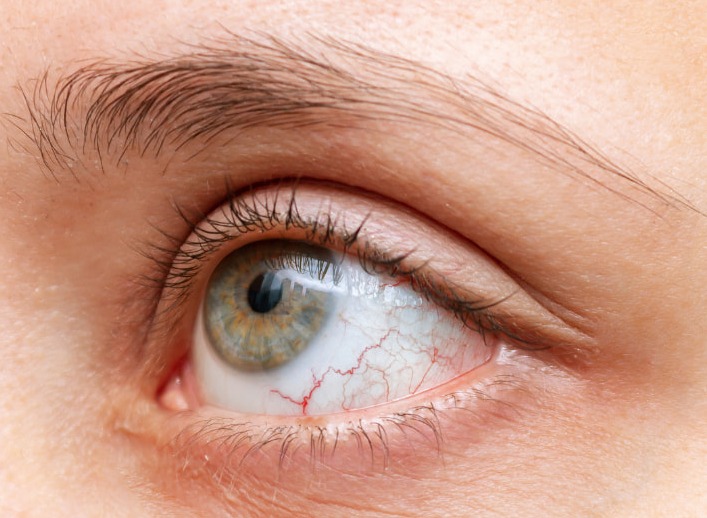Bowel bacteria may impact mood for Crohn's sufferers
Published 22 Feb 2016

You are what you eat, so the saying goes. In fact, the trillions of bacteria inhabiting your gut also eat what you eat, and turn meals into molecules that affect your brain — and some researchers believe those bacteria can have a serious impact on mood and mental health.
It's referred to as the "gut-brain axis." And it can be a healthy and positive relationship, or a serious health problem in the case of Crohn's and other forms of inflammatory bowel disease, which affect one out of 150 Canadians.
'This is where I'll open up my wrists'
"The pains were so tremendous. You spend most of the day on the toilet," said Winnipeg's John Harvie, describing the havoc Crohn's disease has wreaked in his life.
Not surprisingly, Harvie said Crohn's disease has also wreaked havoc on his state of mind.
"At my lowest point, I remember lying in a bathtub filled with water and thinking, 'OK, well, this is where I'll open up my wrists.'"
It makes sense that painful and embarrassing gut problems can be emotionally distressing. But for Dr. Charles Bernstein, there's more to it than that.
Mood disorders precede gut problems
Bernstein is a professor of gastroenterology at the University of Manitoba, and he's noticed that mood disorders in people with Crohn's and other forms of inflammatory bowel disease often precede gut problems.
He thinks the trillions of bacteria in a person's bowel affect both mood and gut function.
"Having bacteria in your bowel triggers an immune response, and if the trigger is an aberrant immune response, some of that immune response may also impact on brain function," Bernstein said.
"By manipulating the bugs in the bowel, one may be able to improve the mood disorder."
Manipulating gut bacteria may help treat Crohn's, mood effects
The idea of treating Crohn's and its mood effects by manipulating gut bacteria intrigues Stephen Collins, a gastroenterologist at McMaster University.
Gut feeling: How intestinal bacteria may influence our moods
Bacteria are tiny chemical factories, Collins said. The molecules they produce could affect the brain in two ways.
"The secretion of metabolites, or some product of the bacteria, either directly influences the brain or indirectly influences the brain. Another way is by accessing neural circuitry directly, close to the inner surface of the gut."
If healthy gut bacteria affect the mind, said Premysl Bercik, one of Collins' colleagues at McMaster, it's no surprise antibiotics can have an effect on mental state.
"This is called antibiotic-induced psychosis, and usually these patients normalize their behaviour when you stop this antibiotic treatment," Bercik said.
Gut bacteria levels may affect mood disorders
On the other hand, inflammatory bowel disease and associated mood disorders both seem to be linked to abnormal populations of gut bacteria.
Crohn's bacterial ecosystem identified
The efficacy of probiotics — edible formulations of good bugs to replace the bad — is now under investigation.
Probiotics seem to help lower blood pressure
The simplest approach may be a healthy diet — for you and your gut bacteria.
"Diet is one of the major influences on the metabolic activity of the bacteria," said Collins.
"And if you now believe that these bacteria are in constant communication with the brain, then it's absolutely possible that food can alter your mood and your mental status via the microbiota."
"It's absolutely possible that food can alter your mood and your mental status."
- Dr. Stephen Collins, McMaster University
John Harvie doesn't need to be convinced that good food can relieve Crohn's woes.
"I don't want to say that I have an understanding of the bacteria in my gut," he said.
"But I will say that I have an understanding that if I eat a balanced meal, my mood is much better."
Harvie said he hasn't tried probiotics, but he's open to the idea.
"I guess it's like kick-starting your bowel, to aid in digestion. And quite frankly, when you're healthy, your mood does improve. I can testify to that."
Fecal transplant potentially hazardous treatment
If a good diet, anti-inflammatory drugs and probiotics don't resolve a case of Crohn's and associated depression, a fecal transplant may be next — though the procedure is potentially hazardous.
C. difficile infections could be treated with fecal transplants beyond clinical trials
Blood transfusions were considered perfectly safe until the emergence of blood-borne pathogens such as HIV and hepatitis C.
Great care will be taken before inserting one person's fecal matter into the gut of another, lest it cause infection — or go to their head.
CBC
Comments
You will also like
See the testimonial
Read the article
Read the article

 Facebook
Facebook Twitter
Twitter


